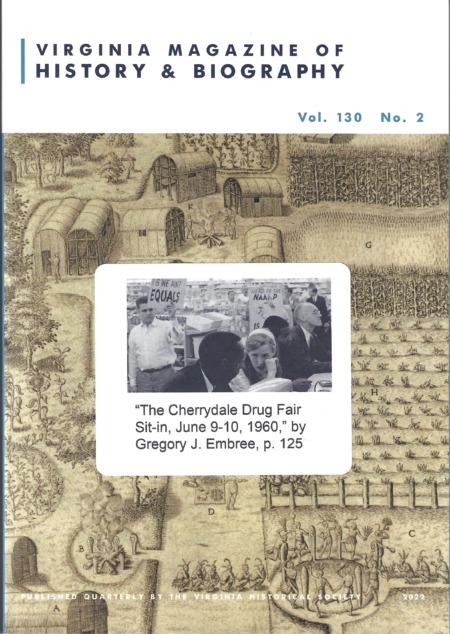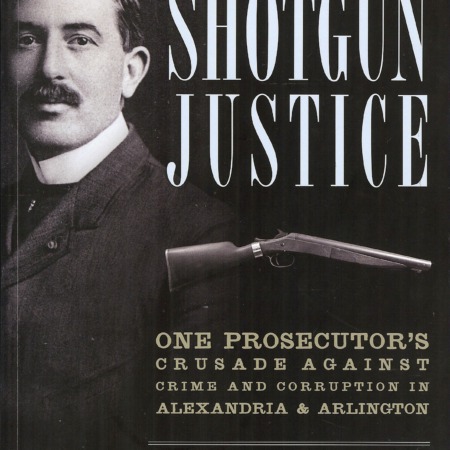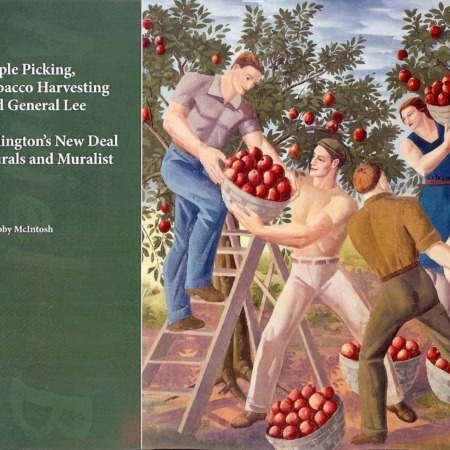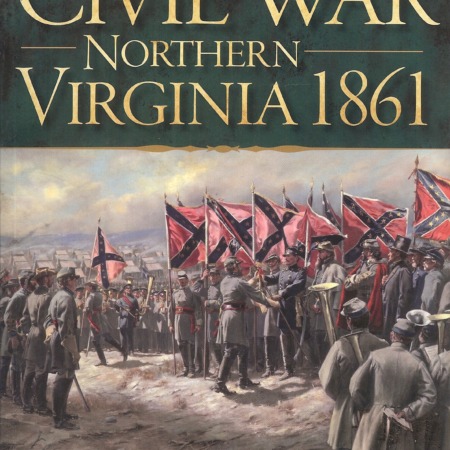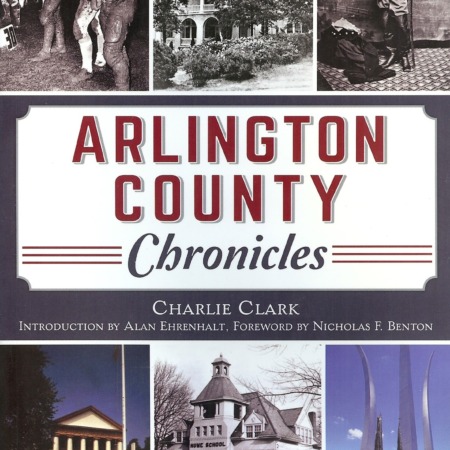Description
Cherrydale Drug Fair Sit-In 9-10 June 1960: An Arlington Neighborhood’s Brush with History by Gregory J. Embree, pages 124-150 in the Virginia Magazine of History and Biography (Vol 130, No. 2)
In an early civil rights protest, on June 9, 1960, six college students sat at the lunch counter at Arlington’s Cherrydale Drug Fair and were refused service because of the racial mix of their group. African Americans could patronize stores but employees they could not be served at the lunch counters within the stores. Their sit-in attracted onlookers, some hurling insults and threats. But the protesters remained steadfast, cool, and unflinching. Their peaceful protest continued the following day and inspired similar sit-ins nearby. Within two weeks, lunch counters across Arlington, Alexandria, and Fairfax had changed their policies and desegregated.
Local historian Gregory Embree has captured the drama, the background, and the details of this two-day protest in Arlington, Virginia in this 25 page article with photos of the event. The author interviewed the participants on both sides and documents this event in a personal way that only a resident of the Cherrydale neighborhood might.
The sit-ins in Arlington and across the South led to momentous changes in society that extended rights to Black Americans. In 1960, when Martin Luther King Jr. met with John F. Kennedy, who was running for president, Kennedy told King that it was the lunch counter sit-in movement that made him aware of the urgency of civil rights legislation.
- Softcover: This article is 25 pages of this edition of the Virginia Magazine of History and Biography. You will receive the entire Magazine edition with also includes another article “Legal Tender Laws and Colonial Virginia’s Diversification Problem” by Christopher Calton
- Publisher: Virginia Historical Society, 2022
Author, Gregory Embree, generously donated copies of this magazine to both AHS and the Black Heritage Museum of Arlington intending that the proceeds of the sale of them by our respective organizations would be used to benefit our organizations.

